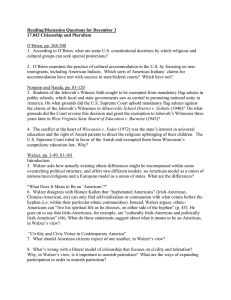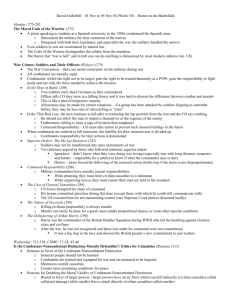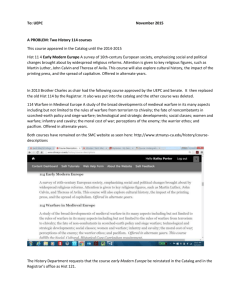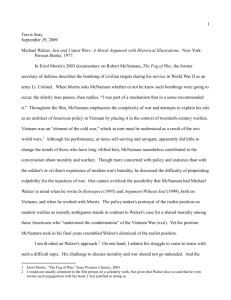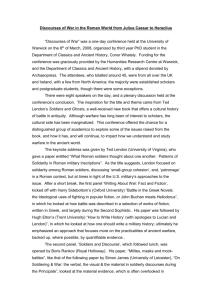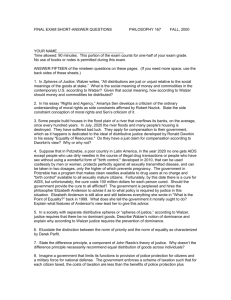Georges Van Den Abbeele Hum Core Michael Walzer, Just and
advertisement
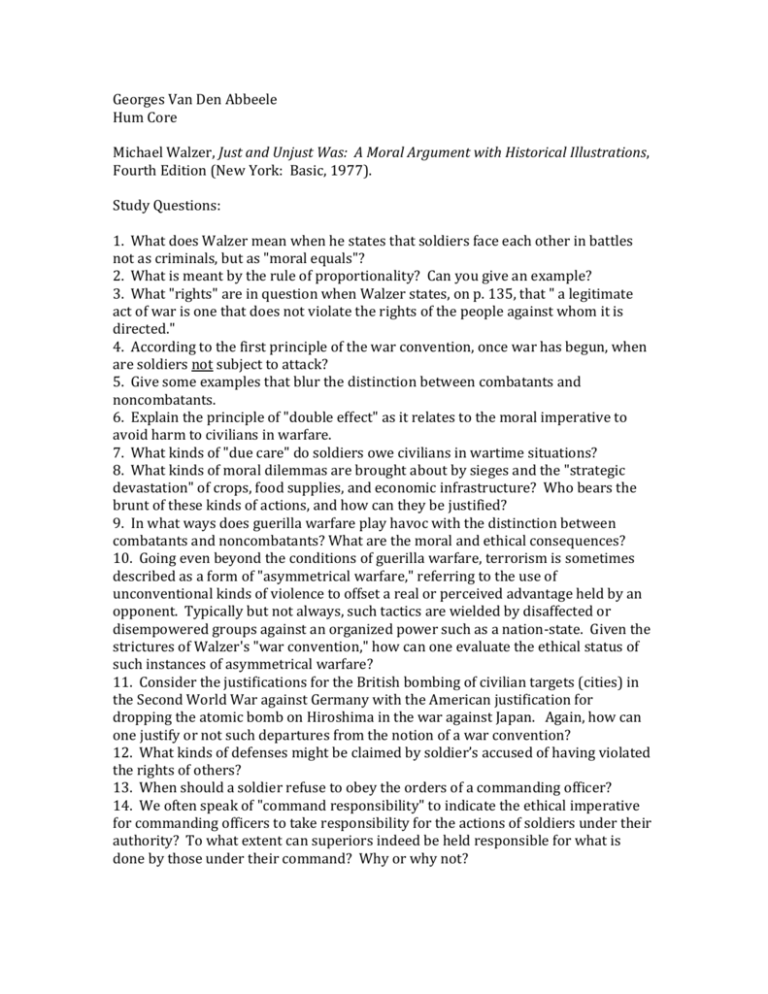
Georges Van Den Abbeele Hum Core Michael Walzer, Just and Unjust Was: A Moral Argument with Historical Illustrations, Fourth Edition (New York: Basic, 1977). Study Questions: 1. What does Walzer mean when he states that soldiers face each other in battles not as criminals, but as "moral equals"? 2. What is meant by the rule of proportionality? Can you give an example? 3. What "rights" are in question when Walzer states, on p. 135, that " a legitimate act of war is one that does not violate the rights of the people against whom it is directed." 4. According to the first principle of the war convention, once war has begun, when are soldiers not subject to attack? 5. Give some examples that blur the distinction between combatants and noncombatants. 6. Explain the principle of "double effect" as it relates to the moral imperative to avoid harm to civilians in warfare. 7. What kinds of "due care" do soldiers owe civilians in wartime situations? 8. What kinds of moral dilemmas are brought about by sieges and the "strategic devastation" of crops, food supplies, and economic infrastructure? Who bears the brunt of these kinds of actions, and how can they be justified? 9. In what ways does guerilla warfare play havoc with the distinction between combatants and noncombatants? What are the moral and ethical consequences? 10. Going even beyond the conditions of guerilla warfare, terrorism is sometimes described as a form of "asymmetrical warfare," referring to the use of unconventional kinds of violence to offset a real or perceived advantage held by an opponent. Typically but not always, such tactics are wielded by disaffected or disempowered groups against an organized power such as a nation-state. Given the strictures of Walzer's "war convention," how can one evaluate the ethical status of such instances of asymmetrical warfare? 11. Consider the justifications for the British bombing of civilian targets (cities) in the Second World War against Germany with the American justification for dropping the atomic bomb on Hiroshima in the war against Japan. Again, how can one justify or not such departures from the notion of a war convention? 12. What kinds of defenses might be claimed by soldier’s accused of having violated the rights of others? 13. When should a soldier refuse to obey the orders of a commanding officer? 14. We often speak of "command responsibility" to indicate the ethical imperative for commanding officers to take responsibility for the actions of soldiers under their authority? To what extent can superiors indeed be held responsible for what is done by those under their command? Why or why not? 15. Consider Walzer's conclusion that "the world of war is not a fully comprehensible, let alone a morally satisfactory place" (p. 327). To what extent can we really speak about ethical behavior in warfare ("jus in bello")?
